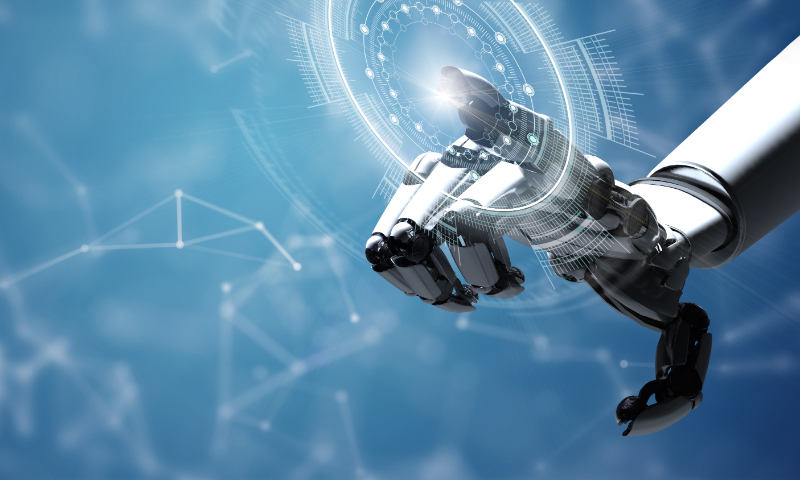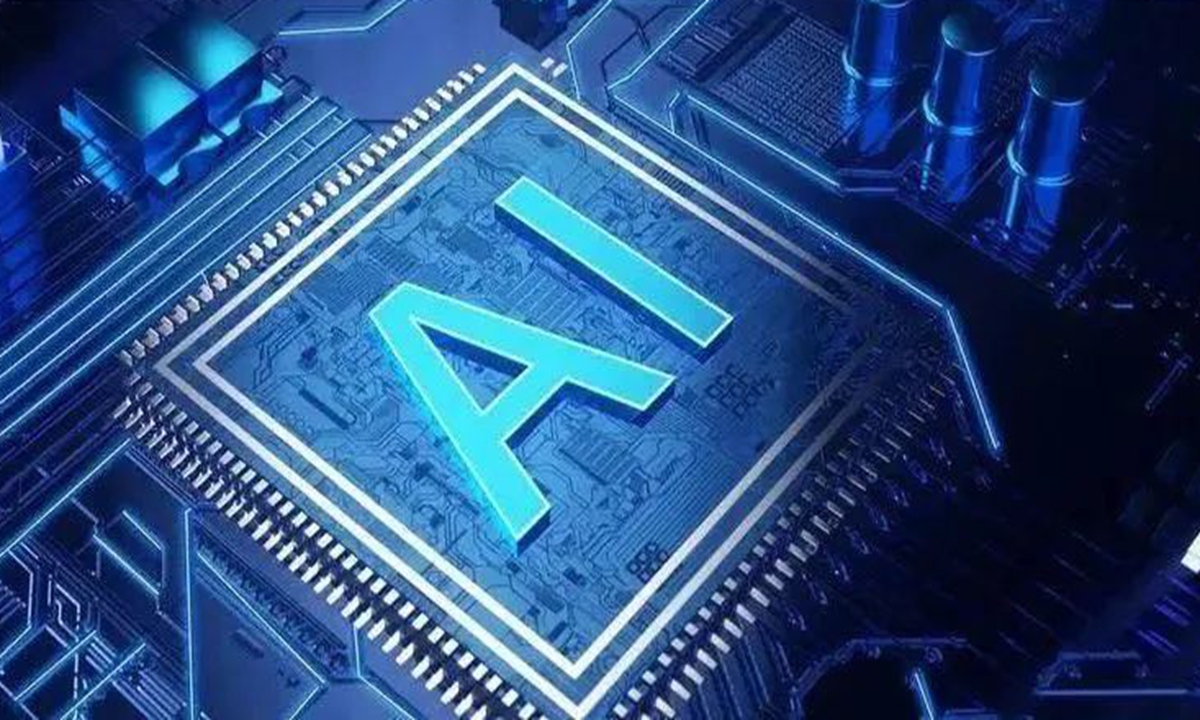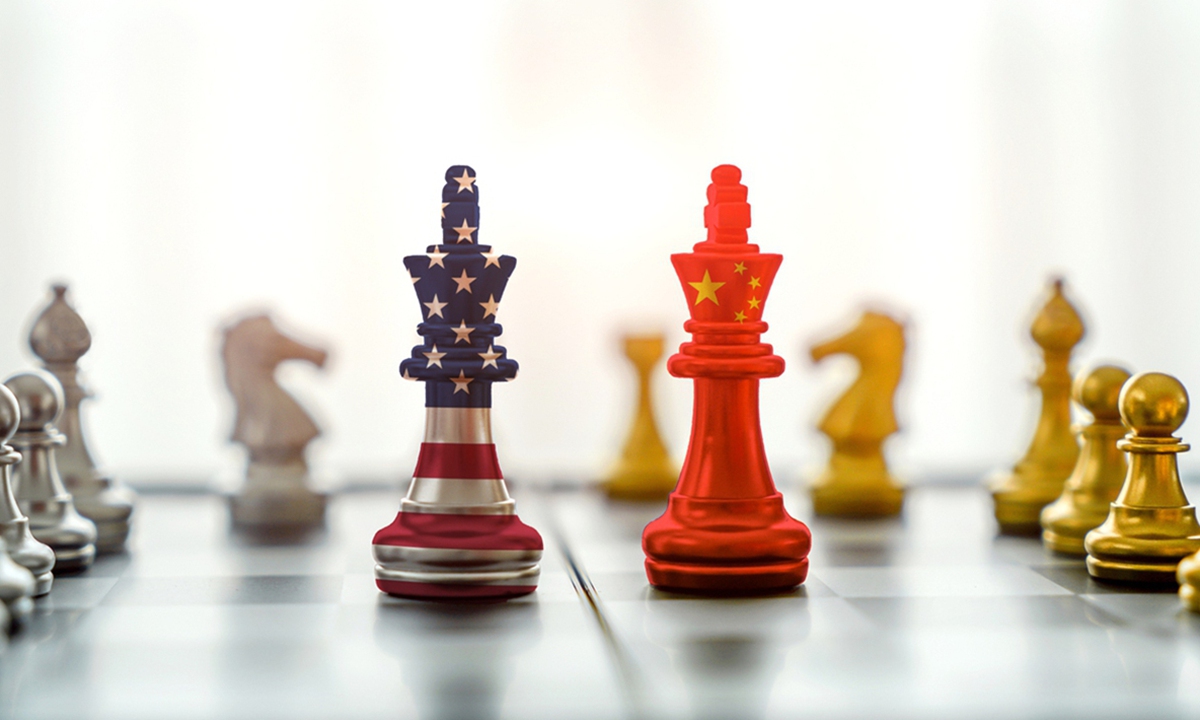US urged to correct mistakes, work with China for win-win results as the two nations agree to hold government talks on AI

A concept photo of AI Photo: VCG
China and the US agreed to start government talks on artificial intelligence (AI) during a summit between the two countries' leaders at Filoli Estate on Wednesday (US time). Chinese observers said the agreement is crucial and timely amid the current China-US relationship, as the significant mechanism in a sector that witnessed the strictest US crackdown on China indicates both sides' willingness to increase communication and avoid escalation of conflicts.The observers said increased China-US exchanges may mitigate US crackdowns and curbs on China's high-tech sector and prompt Washington to ease its ever-intensifying "tech decoupling." They urged the US to correct its mistakes and work with China to strengthen cooperation in technology so as to benefit both countries and global economic growth.
During the summit, the two sides agreed to boost and start mechanism consultations in sectors including business, the economy, finance and export controls. They agreed to start negotiations on renewing the China-US Science and Technology Cooperation Agreement. The two sides also agreed to establish AI talks between the two governments, Chinese Foreign Minister Wang Yi told reporters after the summit on Wednesday.
"The agreement on AI talks is crucial and timely, as AI is one of the key fields where the US cracks down on China the most. The important mechanism will help increase mutual understanding and provide strategic reassurance. As a result, they may conduct cooperation in the AI sector within the extent that both sides can accept," He Weiwen, senior fellow of the Center for China and Globalization, told the Global Times on Thursday.
Both China and the US have significant influence over global technological development, and hold leading positions in AI research and application, Zuo Xiaodong, a professor at the School of Public Affairs of University of Science and Technology of China, told the Global Times on Thursday.
"China-US AI cooperation will be not be limited to the two nations but will have important meaning for global AI development, and the consensus will be very helpful for global innovation," said Zuo.
During the third Belt and Road Forum for International Cooperation held in Beijing in October, China put forward the Global Initiative for Artificial Intelligence Governance, as the country stands ready to increase exchanges and dialogue with other countries and jointly promote the world's sound, orderly and secure AI development.
The US leadership has made it clear that it doesn't want "decoupling" to happen, said Bruce Andrews, vice president of Intel, according to Yuyuan Tantian, a social media account affiliated with China Media Group.
"We believe that there is a really important and valuable opportunity for Intel to work with Chinese companies and the Chinese market. We've got to keep up the discussions and working together of the US and Chinese governments but also the companies," Andrews said.
At the recent 6th China International Import Expo, multiple US chipmakers including Intel and Qualcomm brought their latest research results and products, showing positive sentiment about China's consumption potential and economic development.
Unlike the US reiteration of "healthy competition" with China, the two sides both stressed "managing competition responsibly" at the summit. This shows their sincerity of seeking common ground while leaving aside differences, He said.
The summit offers guidance for the development of China-US relations. Bilateral economic and trade relations showed signs of recovery in recent months, underscored by stronger local exchanges and communications among businesses as well as China's increased exports to the US, He said. He urged the US to remove high-tech restrictions on China, and stop disrupting industry and supply chains.
There is great potential for China and the US to cooperate on AI technology research and development, as well as nurturing talent and industrial development, Zuo said.
To implement the consensus reached by the two state leaders, the two sides should strengthen dialogue, build mutual trust and settle their differences to prevent risks, Zuo said.
He urged the US to correct its hostility and end crackdowns on China's technology growth.
While the US repeatedly stated it has no interest in "decoupling" from China, the US government on October 17 announced new curbs on the export of high-end AI chips to China, which were originally set to take effect on Thursday. In August, US President Joe Biden signed an executive order that would block US high-tech investments in China.
"Washington's two-faced approach is fundamentally ingrained. Due to China's monumental international influence, the US can't 'decouple' from China but it's afraid of China's technological rise. We should realize that the US will not change its strategy toward China and we must strive for tech self-reliance amid international cooperation," Zuo said.


